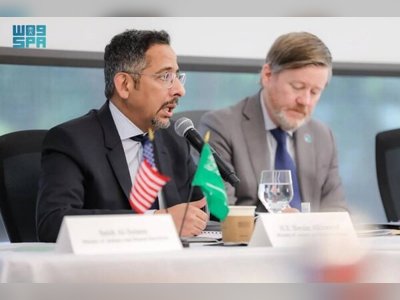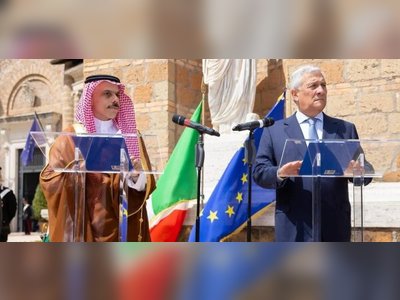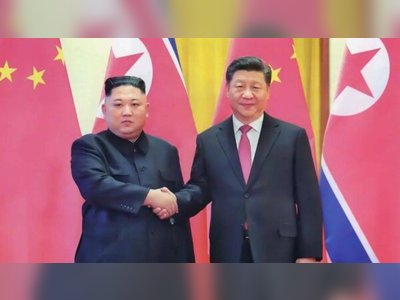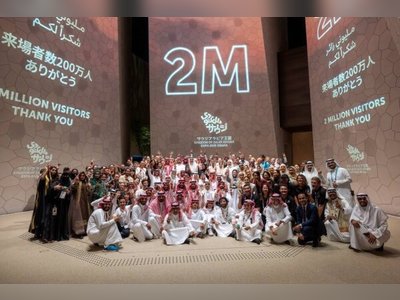
Leading Islamic Scholars Convene in Malaysia to Discuss Modern Jurisprudence Challenges
The forum aimed to examine teaching of Islamic jurisprudence and the formation of contemporary jurists.
KUALA LUMPUR — The Muslim World League’s Islamic Fiqh Council launched its first jurists’ forum in Kuala Lumpur, bringing together leading scholars and muftis from across the Islamic world.
The event, titled ‘Teaching Islamic Jurisprudence and Forming the Jurist: Features and Guidelines,’ was inaugurated by Sheikh Dr. Mohammed Al-Issa, Secretary-General of the Muslim World League and President of the Association of Muslim Scholars.The forum was held under the patronage of Malaysian Prime Minister Anwar Ibrahim and attended by several prominent Islamic scholars, including Sheikh Dr. Saleh bin Humaid, Imam and preacher of the Grand Mosque in Makkah, and Sheikh Ahmad Fawzi bin Fazil, Mufti of Malaysia’s Federal Territories.
Saudi Arabia's Grand Mufti, Sheikh Abdulaziz Al-Sheikh, delivered a keynote address through Sheikh Dr. Fahd Al-Majed, Secretary-General of the Council of Senior Scholars.Participants stressed that Islamic jurisprudence remains a precise and vital science enriched by centuries of scholarship.
They also called for an evaluation of how Islamic jurisprudence is taught in universities across the Muslim world, emphasizing the need to graduate jurists capable of addressing contemporary issues and challenges.
Sheikh Al-Issa praised the Muslim World League for fostering unity and advancing scholarly collaboration in the face of modern challenges.Sheikh Saleh bin Humaid noted that Islamic jurisprudence is not a set of rigid rulings but a living discipline rooted in the Qur’an and Sunnah, evolving with time while preserving its foundational principles.
He called for developing jurists who balance deep Shariah knowledge with awareness of contemporary realities.
Malaysian Mufti Sheikh Fawzi Fazil emphasized the importance of collective ijtihad (juridical reasoning) in addressing new issues emerging from rapid technological and social developments.The forum concluded with a final statement commending the role of fiqh academies in institutionalizing collective ijtihad and issuing recommendations to refine methods of teaching jurisprudence, shaping contemporary jurists, and addressing pressing legal and ethical challenges.
Participants also thanked the Malaysian government for hosting the event and the Muslim World League for its leadership in organizing the gathering.
The event, titled ‘Teaching Islamic Jurisprudence and Forming the Jurist: Features and Guidelines,’ was inaugurated by Sheikh Dr. Mohammed Al-Issa, Secretary-General of the Muslim World League and President of the Association of Muslim Scholars.The forum was held under the patronage of Malaysian Prime Minister Anwar Ibrahim and attended by several prominent Islamic scholars, including Sheikh Dr. Saleh bin Humaid, Imam and preacher of the Grand Mosque in Makkah, and Sheikh Ahmad Fawzi bin Fazil, Mufti of Malaysia’s Federal Territories.
Saudi Arabia's Grand Mufti, Sheikh Abdulaziz Al-Sheikh, delivered a keynote address through Sheikh Dr. Fahd Al-Majed, Secretary-General of the Council of Senior Scholars.Participants stressed that Islamic jurisprudence remains a precise and vital science enriched by centuries of scholarship.
They also called for an evaluation of how Islamic jurisprudence is taught in universities across the Muslim world, emphasizing the need to graduate jurists capable of addressing contemporary issues and challenges.
Sheikh Al-Issa praised the Muslim World League for fostering unity and advancing scholarly collaboration in the face of modern challenges.Sheikh Saleh bin Humaid noted that Islamic jurisprudence is not a set of rigid rulings but a living discipline rooted in the Qur’an and Sunnah, evolving with time while preserving its foundational principles.
He called for developing jurists who balance deep Shariah knowledge with awareness of contemporary realities.
Malaysian Mufti Sheikh Fawzi Fazil emphasized the importance of collective ijtihad (juridical reasoning) in addressing new issues emerging from rapid technological and social developments.The forum concluded with a final statement commending the role of fiqh academies in institutionalizing collective ijtihad and issuing recommendations to refine methods of teaching jurisprudence, shaping contemporary jurists, and addressing pressing legal and ethical challenges.
Participants also thanked the Malaysian government for hosting the event and the Muslim World League for its leadership in organizing the gathering.










